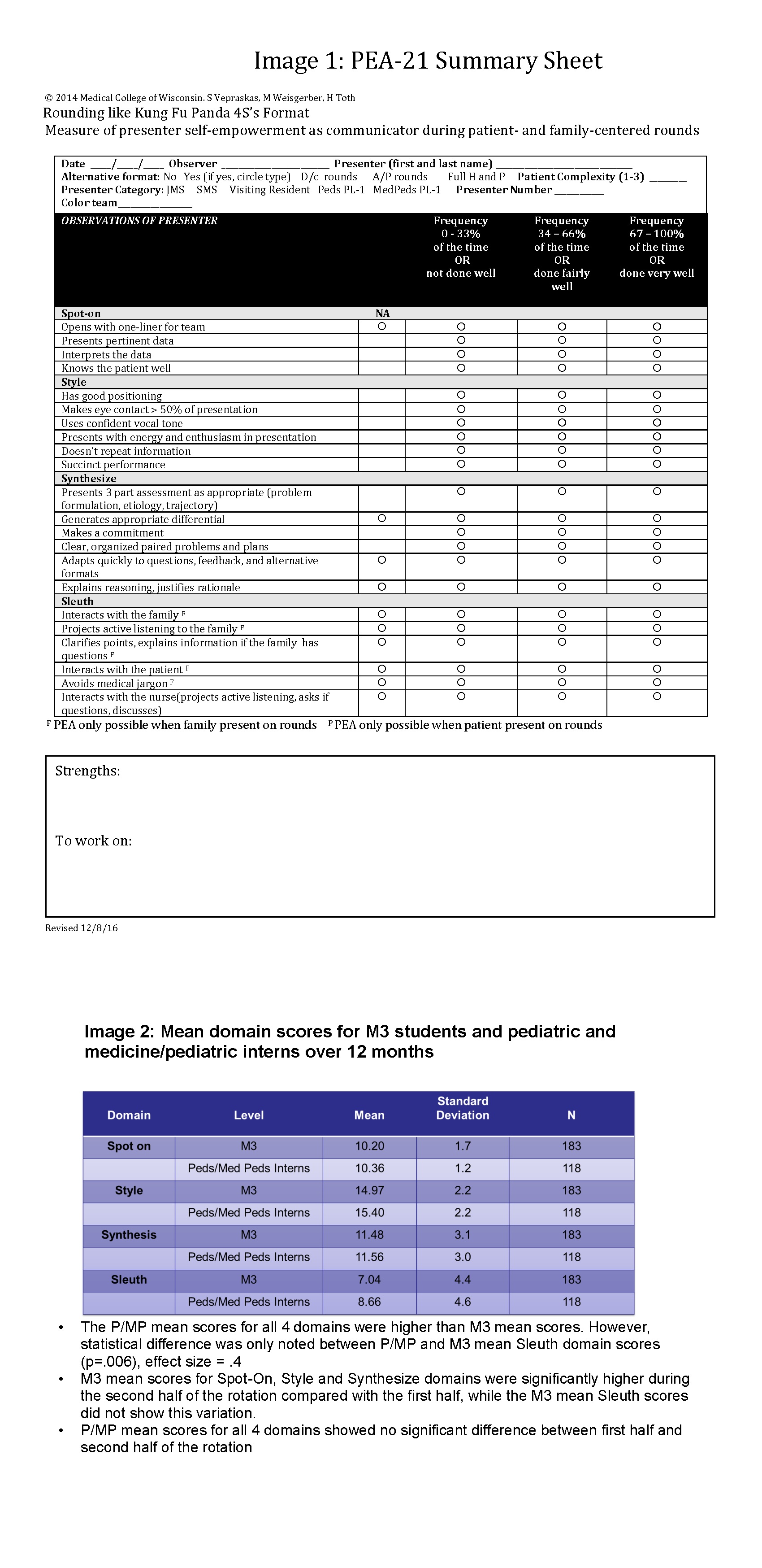Background: Medical students and interns are the primary communicators during pediatric patient- and family-centered rounds (PFCR). Presenter empowerment actions (PEAs) represent behaviors that empower presenters during PFCR to deliver effective, patient- and family-centered care. Third year (M3) and fourth year (M4) medical students are not formally trained on PEAs and their use of PEAs has not been measured. The objective of this study was to measure baseline frequency of PEAs and determine the validity of a PFCR presenter tool in evaluating M3, M4 and intern PEAs.
Methods: A prospective cohort study of PFCR presenters was conducted. Using a modified version of a previously validated PFCR tool (PEA-21), 6 trained observers assigned scores during PFCR on a 3-point scale in 4 domains: Spot-on (presenting accurate data), Style (focus on communication skills), Synthesize (organized delivery), and Sleuth (family communication/interaction). (Refer to Image 1). Response process was optimized with a 2-month rater training and a 6-month pilot phase to yield scoring consistency. Inter-rater reliability (IRR) and internal consistency were evaluated using the Intra-class correlation coefficient (ICC) and Cronbach’s alpha. Using multivariate analysis, M3 and pediatric and medicine/pediatric intern mean score relationship with other variables was assessed.
Results: Following rater training, 461 presentations were observed during 50 PFCR sessions over 12 months. During first 6 months, 242 presentations during 21 PFCR sessions were observed with 2 trained observers. IRR was good with ICC of 0.83 (p<.001). Cronbach’s alpha revealed internal consistency overall (0.71) and within domains. Intern mean domain scores were higher than M3 mean scores with statistical difference only noted between intern and M3 mean Sleuth scores (p=.006), effect size = .4. Spot-On, Style and Synthesize M3 scores improved the second half of the rotation, while the M3 mean Sleuth scores did not show this variation. (Refer to Image 2).
Conclusions: The PEA-21 showed strong validity properties. M3s performed at a similar level to interns in all domains except for family interactions (Sleuth). Future interventions could include increased targeted training for M3s on family interactions on rounds.

